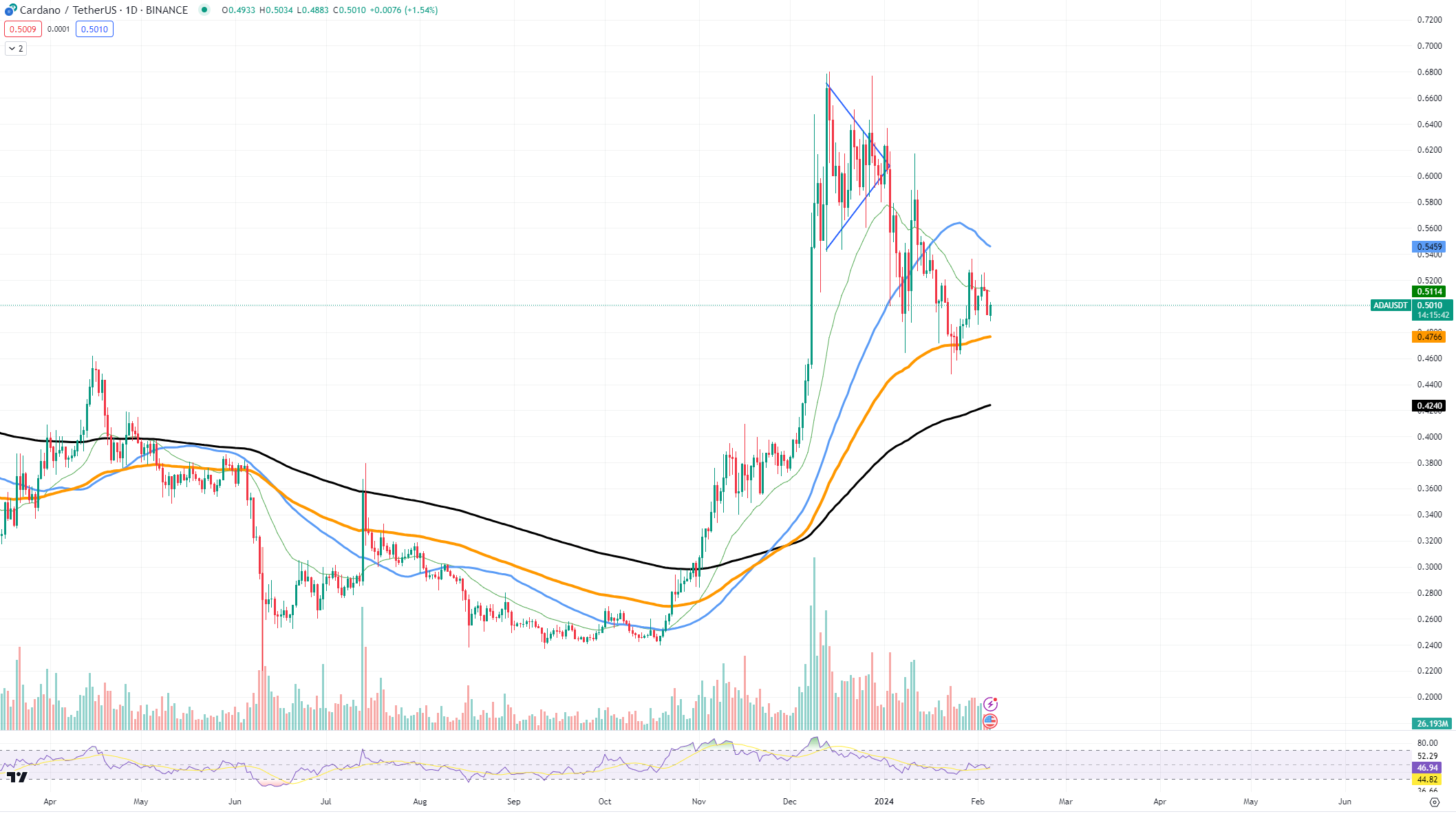Justin Bons of CyberCapital has stirred the Cardano pot with a provocative assertion: Cardano (ADA) and other alternative layer-1 blockchains should be taking cues from Solana's (SOL) playbook. This bold statement comes amid an industry where each platform fiercely competes to offer unique advantages.
Bons suggests that instead of critiquing Solana for its bot activity and low fees that facilitate arbitrage, competing blockchains like Cardano should embrace these aspects. He argues that high bot activity equates to usage, and blockchain economics should not be swayed by the nature of the transactions as long as fees are paid. Drawing parallels to the stock market, he posits that bot activity has been beneficial, and blockchain should be no different.

Analyzing the Cardano chart, we see a potential inflection point. ADA is currently engaging with the 50-day EMA, an indicator often watched for immediate trend direction. The price has recently dipped below this level, suggesting a bearish outlook in the short term.
However, the possibility of a price reversal hinges on ADA's response to this key technical level. The support at $0.4240 could serve as a foundation for such a reversal, but ADA's next moves need to be decisive.
For ADA to mirror Solana's success, according to Bons, it would need to lower fees and potentially attract more bots, which he views as a measure of network utility. This perspective has not been without its critics, some of whom associate high bot activity with network congestion and security risks, evidenced by past exploits within the Solana ecosystem.
Moreover, Bons' shifting stance on Solana, from critical to supportive, has certainly raised some eyebrows. Yet, he stands firm, asserting that his position is grounded in truth, regardless of its popularity. He believes that networks should not discriminate against different types of activities, as long as they contribute to network utility and economics.
 u.today
u.today